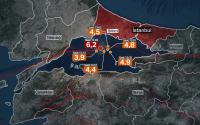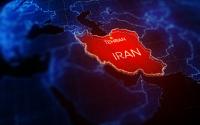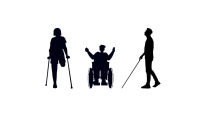Common Dreams / Published on Tuesday, June 7, 2005 by OneWorld.net
The Uzbek government's lethal crackdown against protesters last month amounted to a ''massacre'' that the leadership is trying to cover up, a leading human rights watchdog said Tuesday.
Human Rights Watch (HRW), in what it described as the first comprehensive independent report into the killings in the town of Andijan, said basic questions--including how many actually died--remained unanswered. It accused President Islam Karimov's government of obstructing an international inquiry and demanded that it allow such a probe.
''The Uzbek authorities are trying to whitewash this massacre,'' Kenneth Roth, the HRW executive director, said in a statement. ''Our investigation is a first step towards setting the record straight. But only a full-fledged international investigation, with access to official records, can give a true picture of the tragic events in Andijan.''
Uzbek authorities deny responsibility for the killings. The government has said that 173 people--law enforcers, civilians, and armed insurgents--were killed in an exchange of gunfire in the strategically located town in eastern Uzbekistan.
Officials have said the attackers were Islamic extremists with an Islamist agenda and help from abroad.
The HRW report, however, says that witnesses estimate the death toll could exceed 500. The watchdog found ''no evidence that any of the speakers at the protest promoted an Islamist agenda. According to numerous witnesses, their grievances were overwhelmingly about poverty, corruption, and government repression.''
Armed men were present during the shootings but the Uzbek government's use of force against the crowd in Andijan's Bobur Square was ''neither proportionate nor appropriate to the danger they posed,'' the report says.
Based on interviews with some 50 victims and eye witnesses, it describes the government response to a ''rare, massive protest'' in the square as an ''indiscriminate use of lethal force against unarmed people.''
The trouble ''was initiated by a group of armed people who earlier in the day seized weapons at a military barracks and police station, led a prison break to free local businessmen unjustly accused of Islamic extremism, and took officials hostage in the local government building,'' the report says.
But later, it adds, ''the protest grew into a rally of thousands of people voicing their anger about growing poverty and government repression.''
''The attackers committed serious crimes,'' said Roth. ''Of course the government had the right and the duty to stop them. But that doesn't justify shooting unarmed people on a mass scale.''
Roth demanded a thorough investigation into the killings including ballistic, forensic, and crime scene investigators and access to hospital, morgue, and other official records.
The Uzbek government has rejected an international investigation, calling it unnecessary. Instead, it has said it would allow foreign diplomats to monitor an investigation under way by the Uzbek parliament.
HRW further urged the United States not to engage in any more discussions with Uzbekistan about a long-term arrangement for its military base in the Central Asian country, and called on the European Union to suspend a partnership and cooperation agreement until the Uzbek government allows an independent, international inquiry into the May 13 killings.
Karimov's government is a key ally in what the administration of President George W. Bush has called its ''war on terror.''
The United States has maintained an air base in Uzbekistan since shortly after the Sep. 11, 2001 terrorist attacks on U.S. soil.
Washington, which initially focused on the potential threat posed by the freeing of suspected terrorists, has said it was pressing Tashkent to renounce secrecy and repression.
The HRW report, ''Bullets Were Falling Like Rain: The Andijan Massacre, May 13, 2005,'' echoes questions and concerns about the Andijan crackdown raised in preliminary assessments by rights watchdog Amnesty International and by EurasiaNet, a project of billionaire philanthropist George Soros's Open Society Institute.
Separately, leading refugee advocacy groups report progress in protecting Uzbeks who fled the violence in Andijan by crossing into neighboring Kyrgyzstan but say the asylum-seekers' fate hangs in the balance as authorities have yet to decide whether to officially label them as refugees.
Refugees International, based in Washington, D.C., warned last month that the Uzbeks were at risk of being forcibly returned to their country under pressure from Tashkent and because they were housed in a camp perilously close to the border, over which they could be whisked back to Uzbekistan.
The camp has since been moved away from the border and there have been no further reports of individuals being forced or sent back, Maureen Lynch, research director at Refugees International, told OneWorld Tuesday.
All people have the right not to be returned to a country where they face threats to life or freedom, Refugees International said, citing the 1951 Convention Relating to the Status of Refugees and a derivative 1967 Protocol.
The organization is urging international agencies and wealthy governments to shore up Kyrgyzstan's limited economic capacity to provide assistance to the refugees.






